It’s Halloween night at local Capitol Hill venue Chop Suey, and everyone’s brought their costume A game: there’s a Wonder Woman, a Where’s Waldo, a Log Lady … In fact, about 75 percent of the crowd at this sold-out show are in some kind of getup—and on a Tuesday night, no less. It’s impressive—but perhaps Tacocat has something to do with it, too. The pop-punk band is all about splashy T-shirts, bright pink tutus, and shimmery tambourines—and it doesn’t even have to be Halloween.
Tonight, lead singer Emily Nokes is a spritely Christmas elf with bells on her shoes, while drummer Lelah Maupin is a polka-dot covered clown. The band launches into their set—guitarist Eric Randall deftly plays the chorus while bassist Bree Mckenna sways along to their hit song, “I Hate the Weekend.” The crowd bounces and jumps like they’re in a popcorn machine.
But it wasn’t always a barrel of laughs. When Tacocat started out 10 years ago during the height of Seattle beard-rock, they had to deal with the kind of sexism, name-calling, and mansplaining that came with (and still often comes with) being a female-fronted, feminist-minded band.
“At our very first show, ever, some dude screamed TACOPUSSY—ugh,” exclaims Maupin.
“It was hard to cultivate our scene,” says McKenna. “It took a long time.”
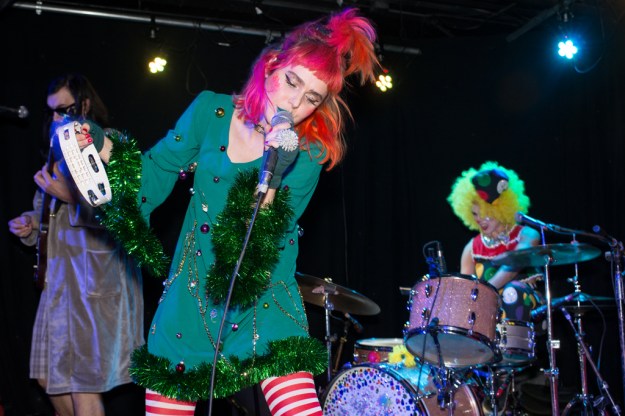
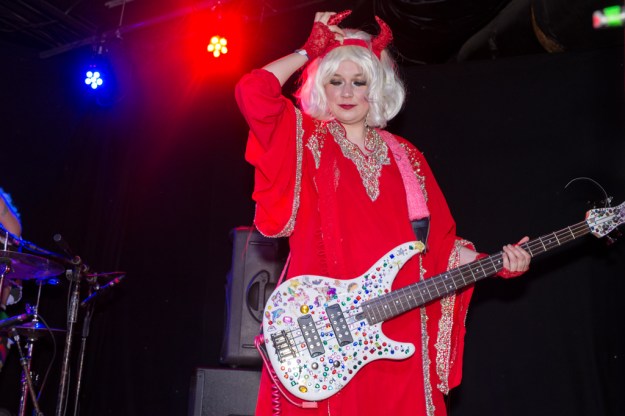
But Tacocat kept at it, determined to carve out a place for themselves, playing shows in basements and DIY spaces across the city, and letting touring bands crash on the couch of their punk house (lovingly called Spruce Haus). They made a point to invite budding female musicians and “all-girl” bands like Chastity Belt from eastern Washington to open for them.
The result is a flourishing, inclusive DIY scene that welcomes women musicians and encourages collaboration. It’s the kind of scene, Nokes says, that’s defined by mutual support and camaraderie.
“Where you just get all your friends to play your release show, and everybody is really supportive of everybody’s new album or music video, and we all help each other out, like, “I’ll be in yours and you can be in mine,” says Nokes.
Just ask Julia Shapiro, lead singer and guitarist for Chastity Belt. She formed the band with two college friends, and soon they were disrupting frat house parties by scrappily shouting on stage about things like stealing cigarettes from their moms and being proud to be a “cool slut.”
“People only talk about the feminist movement here as reclaiming Riot Grrrl, but there’s also a ton of female electronic artists who are basically fighting for the same thing. It doesn’t have to be so genre-specific,” says Bailey Skye, an artist who performs in Seattle and New York City as Nightspace.
Enter TUF, which started in Seattle in 2015 as a way to counter the under-representation of women in electronic music (here are some depressing statistics).
“It was really disheartening to go to electronic shows and see all of these men hanging out with each other, and just feeling like none of the women in the room knew each other,” explains Katherine Humphreys, one of the founders of the group. “Or the connections weren’t being made to support each other in terms of DJ’ing.”
So she and group of friends started a Facebook group for their collective of female-identified, trans, and gender non-binary musicians, artists and DJs. But soon they felt the need to meet up in real life.
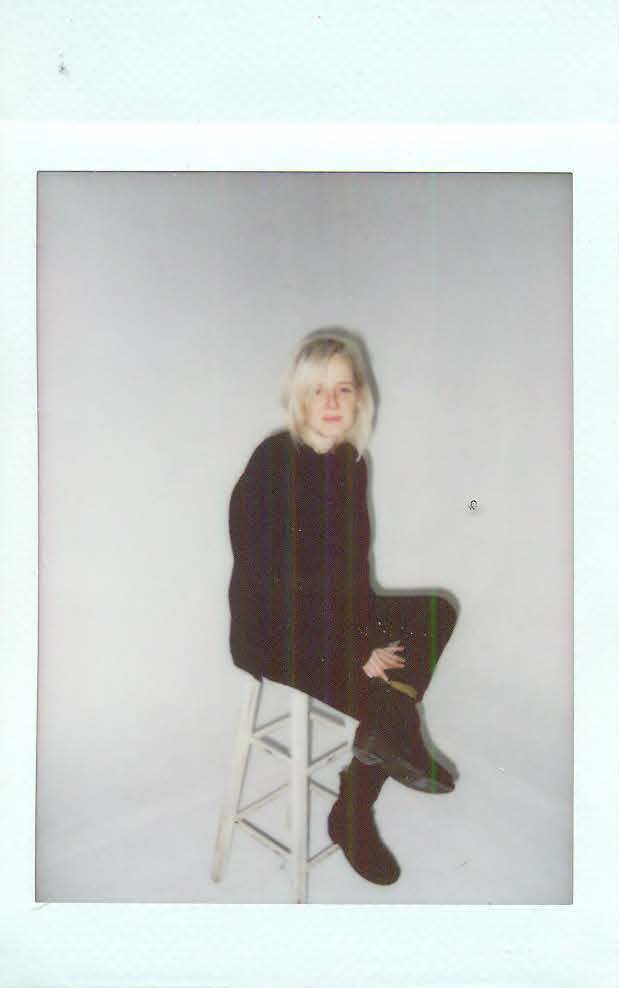
“I think the first meeting was in a house that I used to live in on 12th, and there were over 30 people there. Everyone was crammed into the living room; we had so many things to talk about,” Humphreys says.
Since then, TUF has blown up to include a few dozen IRL members (and even more joining in from other cities online), and offers DJ’ing skill-shares and a “family night” at local bar The Runaway every month.
And the group’s impact on Seattle’s electronic underground can’t be denied. There are TUF DJs behind the decks at dance clubs almost every night of the week, spinning techno, house, ambient, funk, dance-pop, synthwave, triphop, and more. And collective members are curating some of the best electronic music events in the city, like Research, a regular underground dance night at Kremwerk.
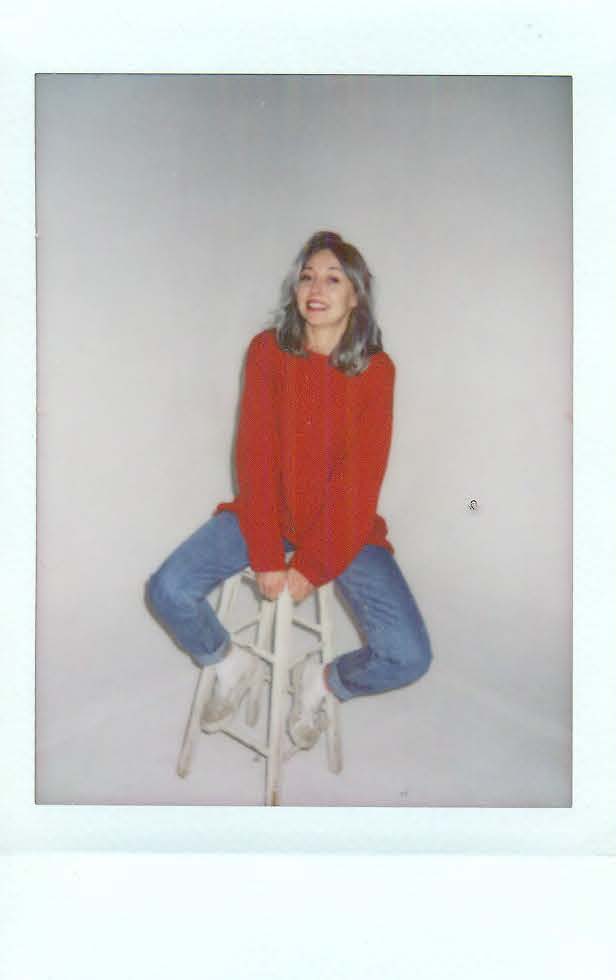
Their efforts have amounted to no less than a sea change in how shows in Seattle are booked, who books them, and who gets to perform—namely women, female-identified/non-binary/genderqueer artists, and artists of color.
“I feel like a year or two ago, a male booker would’ve been like, ‘they won’t have draw,’ or ‘that won’t work,’ or ‘you can’t do that.’ Well look at it working, and these people do have draw, and…well, you can just shut up,” laughs Cecilia Corsano-Leopizzi, a TUF member and curator for the Research series.
Similar to other femme-focused DJ collectives around the world (like Discwoman in New York and Born N Bread in London), TUF aims to flip the turntables back into the hands of the kinds of people that started club culture in the first place.
“I don’t know if it’s a punk spirit or what, but it’s kind of like, originally, dance floor culture comes from clubs and dance music that was centered around social justice. It came out of a lot of communities of color, communities of marginalized people,” says Humphreys. And it’s those very roots that the members of TUF intend to stay true to.
“I think that all of us firmly believe that our feminism isn’t a feminism that leaves people behind,” she adds.
They even started an annual electronic music festival, TUF FEST (now in its second year), featuring only female-identified and non-binary artists like local beat-maker DoNormaal and sound collage wizard Elysia Crampton, among many others.
Christianne Karefa-Johnson, aka hip-hop artist DoNormaal, must surely be the most prolific performer in Seattle. The living room in her one-bedroom apartment has the cluttered look of a creative mind: littered with guitars, skateboards, random keyboards, amps, and pieces of art she’s made with her partner, Raven. A poster of Bob Marley covers the fridge, and a stuffed pink monkey hangs from an overhead light in the kitchen.
In 2016, she played over 100 shows. This year, she’s lost count entirely.
“I’ve started to be a little bit more selective,” she says, shyly looking down at a pair of snowboard boots she bought at the Goodwill, “but not a lot. If I’m free and I feel like it, I pretty much say yes.”
DoNormaal came to Seattle a few years ago as a self-described “outsider.” Growing up in Southern California in a mostly white community, she says she’s used to being an “infiltrator” in new places. So, she brought her musical talents, and her distinct brand of swagger, and soon enough, she found a city that was receptive to it.
“I think Seattle’s probably the perfect place for a new artist that’s trying to do something new and interesting,” she says. “I think people are really into that here.”
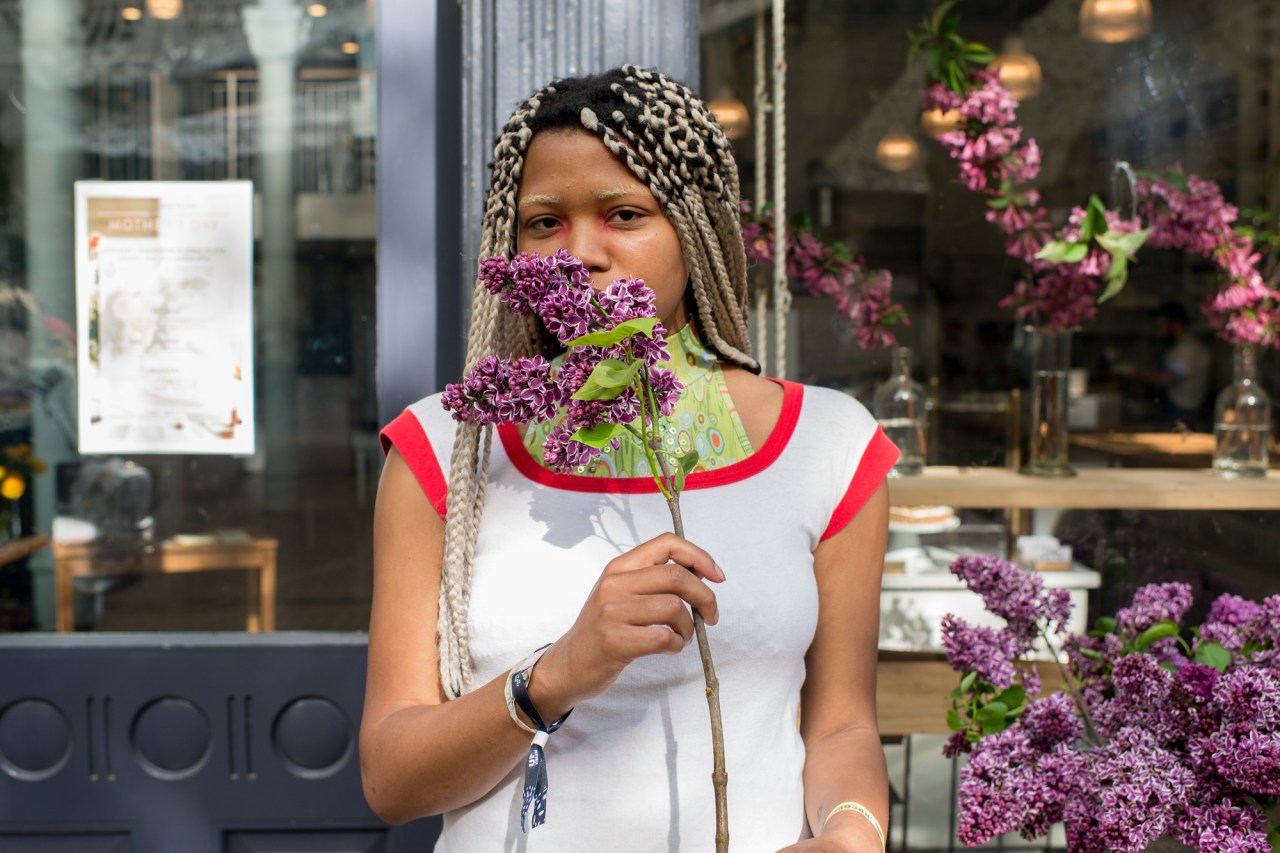
“New and interesting” doesn’t even begin to describe the inimitable sound of DoNormaal— from her stunning debut LP, “Jump or Die,” to her latest album, “Third Daughter.” In the still very male dominated world of hip hop, it’s clear DoNormaal is doing something different, experimenting with sound, bringing in diverse collaborators, and breaking the traditional rules of hip hop, one irresistible hook at a time.
“Hip hop, to me, is the fundamental sound for all contemporary music. I really would argue to say that every artist today is actually a hip hop artist, whether they call themselves that or not.”
Using genre-bending additions like synths and guitars, imaginative, beguiling rhymes, and off-kilter beats, DoNormaal draws from a vastly diverse set of influences: her favorite hip hop artist, Lauryn Hill, female vocalists Fiona Apple and Amy Winehouse, and classic rock bands like Zeppelin, Pink Floyd, The Rolling Stones, and The Beatles.
“I like really melodic music that has a strong pop sensibility, but is also kind of like, out there, in a weird way.”
Along with her partner Raven, DoNormaal also curates shows around town under the name of 69 Fifty, which started out as small affairs, but have now expanded into a regular night at Chop Suey, and a host of other venues.
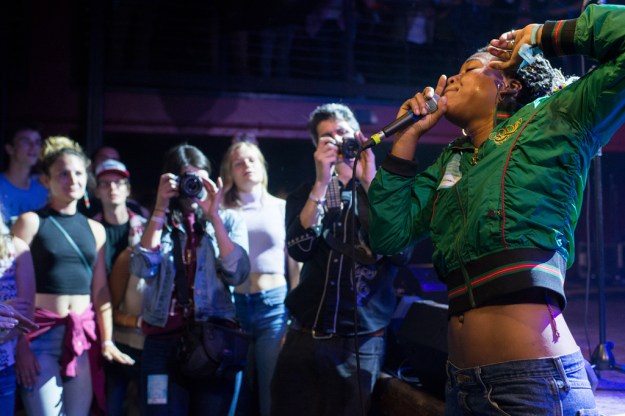
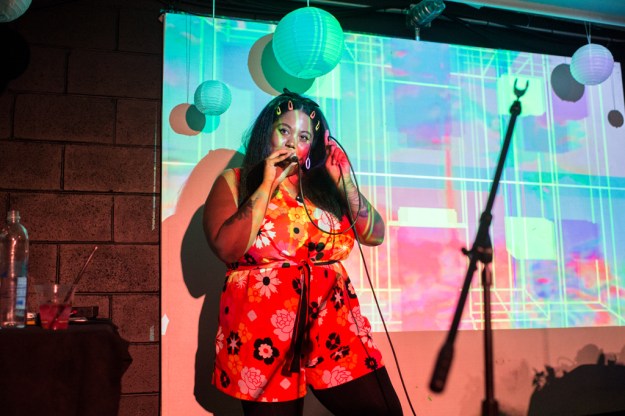
“And it’s really just about giving artists a platform, hearing different types of music, seeing different scenes converging, getting people from all over Seattle to meet in one place.”
The community built around the shows have led to a bonanza of cross-pollination that’s often fruitful, sometimes chaotic, and always hella fun.
“We probably have like 10 or 12 performers sharing sets at a show; it’s really high energy. It’s an anything goes type of vibe. Anybody who wants to get on the mic can get on the mic.”
Along with rapper Taylar Elizza Beth, Guayaba, who combines Afro-Cubans rhythms with smart, sexy rhymes, and singer/songwriter/producer Sassy Black, DoNormaal and her contemporaries are pushing boundaries.
“There’s a lot of playfulness in the way that we present ourselves, and in our behavior, it’s naturally just kind of queer and playful, and not easily pegged as one thing or the other.”
Seattle writer Charles Mudede says Seattle hip hop can be measured in waves: the first wave, from the early nineties until 2002, includes Central-District based rappers like Sir-Mix-A-Lot and The Silent Lambs Project, the second wave is best known for the more politically-focused Blue Scholars, and Macklemore, and the third wave includes experimental artists like Mad Rad, THEESatisfaction, Champagne Champagne and breakthrough sensation Shabazz Palaces. So, could this be the ‘fourth wave’? DoNormaal laughs.
“I don’t know what number it is, but…it’s definitely a wave,” she says.